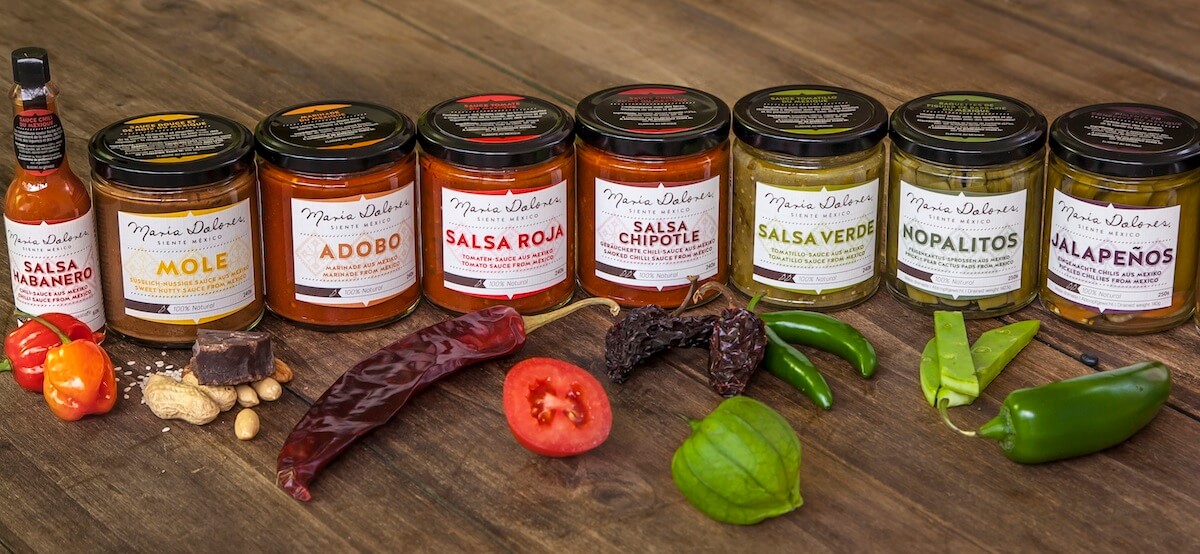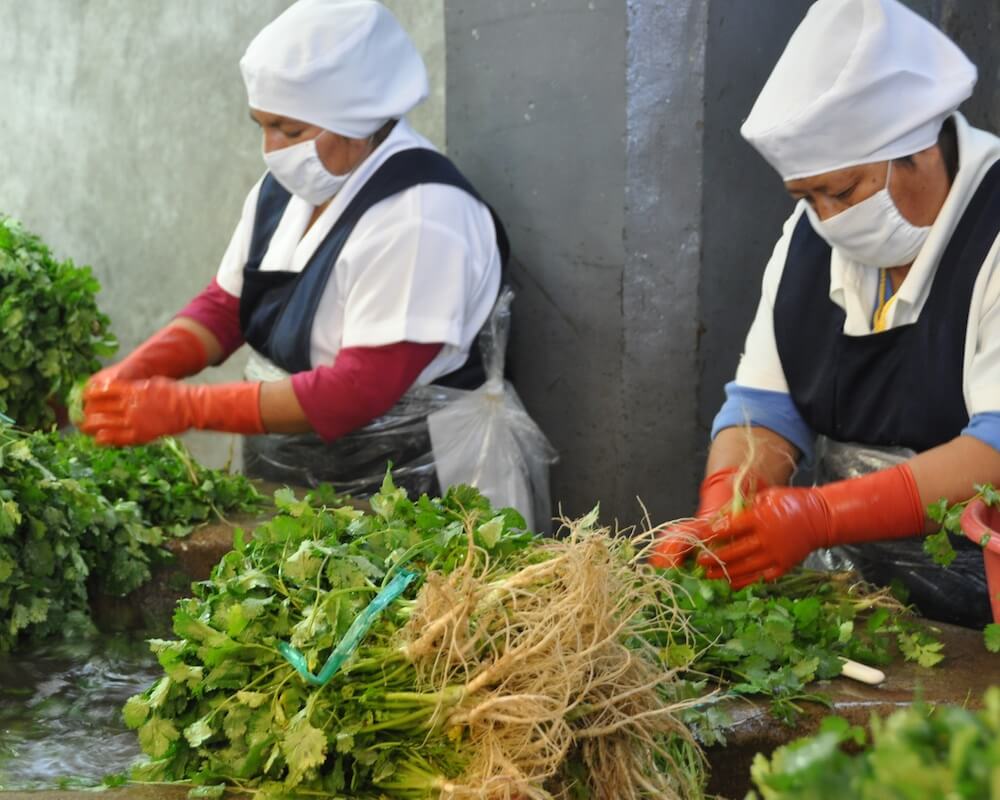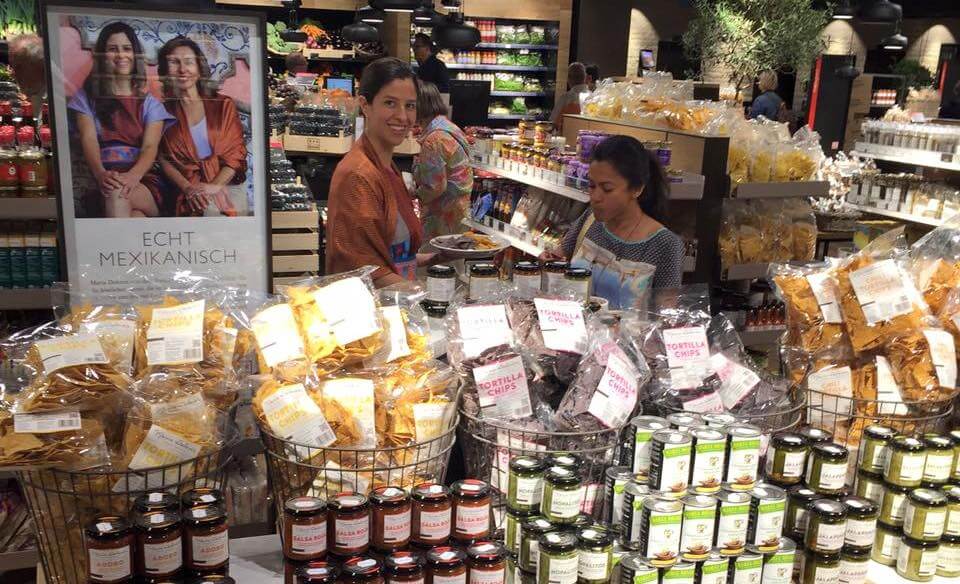When María Dolores left her native Mexico in the 1980s, she took with her a grand passion for Mexican cooking. Settling down with her Swiss husband, María Dolores was so shocked at what passed for Mexican food in Switzerland, she felt compelled to start her own business. Since then it’s grown to include her daughter Dominique.Dominique Landolt Ortíz tells us about her mother’s entrepreneurialism, her heritage and how the business grew steadily and purposefully over the years.
What made your mother start her own Mexican food business when she first moved to Switzerland?
Switzerland represented such a stark contrast to Mexico; especially in the 80s there was quite a different atmosphere from today. People didn’t travel as much and she couldn’t find anything that even came close to Mexican fare. When big chains organized ‘Mexican food weeks’ she was be shocked at what passed for Mexican cuisine. So she decided to take matters into her own hands and that’s when the María Dolores brand was born.
It was really this passion of hers that drove the first few years of the business. She was on a mission to show people about real Mexican food. She started by going to street markets and selling jars of salsa that she slowly became known for. The problem was – and still is – that people mistake Tex-Mex for Mexican. Not many people know dishes like mole or ingredients such as prickly pear cactus which are at the core of our traditional diet. Mexico is such a big country and is home to great diversity. A large part of what we do comes from our pride in our heritage; we want to show people what our country is all about.
What made you join your mother’s business four years ago?
I’d always been involved in the family business. I used to help my mother with sales and distribution on market days. Then, about 12 years ago, my parents moved back to Mexico while my brother and I stayed in Switzerland. I was suddenly in charge of my mother’s business as well as my own job and my studies. That period gave me a crash course in how our business works! My mother meanwhile transferred the entire production line to Mexico; she sent me the sauces and I took care of sales.
When my parents came back after 2 years it was time for me to finish my studies and go my own way for a while. I am very interested in social and cultural topics and I went to work in communications and marketing strategy for a museum. That was great experience which helped me to add value when I rejoined my family’s business.
When did you join full time?
About four years ago. The business was over 15 years old but I had to create my own job and my earn own salary. This is par for the course when you are turning what is essentially a one-woman show into a multi-generational business. My mother said to me “Here’s a diamond, now polish it.” I took on the challenge and I’ve expanded our operations and doubled our sales.

What was the first thing you changed?
Well my mother had established the products very well. The salsas were doing so well that our most important client was asking for more. So one of the first things I did was to extend the product range: mole, black beans, guacamole and prickly pear cactus. Then we tackled the packaging to make it more appealing. We settled on a logo in my mother’s handwriting which is very distinctive and has a lot of character.
Where do you make your products?
We manufacture most of our products in Mexico. The products with a very short shelf life like corn tortillas are made in Switzerland. Our philosophy is to avoid preservatives and that means that the shelf life of our products is generally shorter. We have to allow two to three months for shipping from Mexico to Switzerland because we use shared containers.
We don’t have our own production facilities in Mexico but rent a large industrial kitchen twice a year. Usually, my mother goes to Mexico in spring and autumn to cook and to oversee the whole production process. She has a team who washes and cuts the vegetables. My mother stirs the sauces in a large 200-kg cauldron! One of us is always there to taste the end result. When my mother was ill last year, my father and I were present and I even had to do the tasting. That was a big step for me.
Having a family member involved at every step of the way helps keep quality high. My mother’s name is the brand name and we take that very seriously. The feedback we get from our clients is extremely positive so we are pleased with the outcome of all our dedication.
Is it difficult to work efficiently between two countries?
It was really my parents who put everything in place 10 years ago: import and export permits, fair trade and so on. When I joined, my parents had already figured out a good rhythm between the countries. My mother has helped me with my Spanish, softening my communications down a bit where I was too ‘official’ with our partners in Mexico. We’ve had to develop strong relationships on both sides. We’ve learnt how to deal patiently with the informality of business in Mexico. We’ve learnt to calculate enough time for all the processes to comply with the binding nature of agreements here in Switzerland.
How do you see the future of a brand that was a one-person operation until you joined?
I think we’ve already started. We’ve integrated me into the process. We’ve made the production a little less dependent on my mother. We want to take it step by step and grow gradually, just like my mother did when she started the business. We want to keep doing our best, never compromising in terms of production quality, we definitely want to stay a gourmet brand representing outstanding traditional Mexican cuisine. Because we have carved a niche for ourselves, we are getting more and more calls from exhibitors and clients who are looking for our specific expertise. There’s also potential to expand geographically as well but we will be guided by demand.

How do you stay patient with your business?
I think our conviction is what keeps us steady. The fact that we love working together and producing something unique. But the journey hasn’t been easy. I can’t imagine how hard it must have been in the early days. Even now there are stretches where it’s really tough. But we are happy to be together in this and there’s nothing else any of us would rather be doing.
How do you define innovation?
Working between two countries such as Mexico and Switzerland has changed my perspective on what innovation means. Our product is essentially what Mexican people have been eating for over 500 years, if you take Mole as an example. Yet, here in Switzerland, it’s a novelty. Innovation means giving your consumers more options, taking something that is a tradition in one place and giving it new life elsewhere. So something that is traditional in one context can be highly innovative in another.
You have very strong women in the family. How do you see the role of the men in the business?
My father has supported my mother over the years, especially in administration and logistics and he still helps us with deliveries and production. My brother is probably the best brand ambassador we have. He is very attached to the business and often gives his input. Right now the business isn’t ready for another family member but hopefully in a little while this will change. There has to be a good fit for his talents. He would be very welcome; I can’t imagine anything that would make us happier than having him with us on this adventure.

